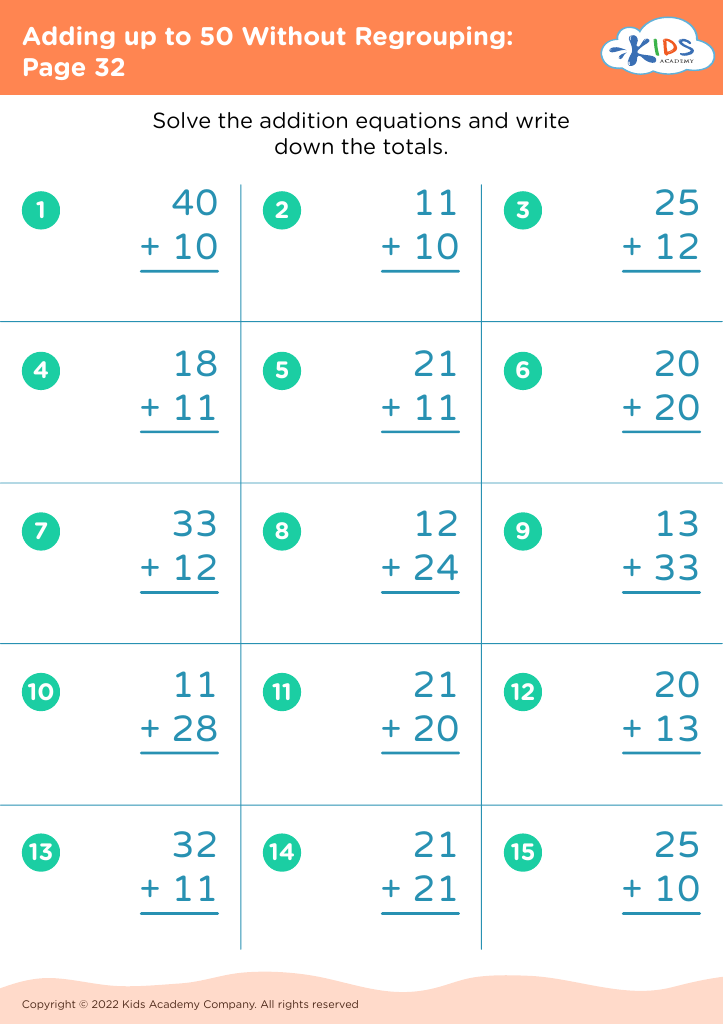Counting objects Adding up to 50 Worksheets for Ages 7-8
4 filtered results
-
From - To
Explore our captivating "Counting Objects Adding up to 50 Worksheets for Ages 7-8" designed to bolster your child’s math skills through fun and engaging activities. Each worksheet focuses on helping children practice counting and simple addition of objects, making math both enjoyable and educational. Perfect for second graders, these worksheets are aligned with key learning objectives to ensure steady progression. By repeatedly counting objects and summing them up to 50, kids strengthen their foundational math skills, improve concentration, and boost confidence. Ideal for classroom use or home practice, these worksheets are your go-to resource for math success!
Counting objects and understanding the concept of addition within 50 is essential for children aged 7-8 for several reasons. Firstly, this skill is foundational for more complex mathematical operations that they will encounter in later academic years. Mastery of counting and simple addition enhances their numeracy, enabling them to tackle problems involving subtraction, multiplication, and division in the future.
Furthermore, grasping these concepts boosts a child’s confidence and prepares them for everyday activities that require basic math, such as handling money, telling time, or following recipes. These skills promote logical thinking and problem-solving abilities, which are critical for overall academic success and daily life.
Engaging with numbers early on also helps students understand the number system and develop a positive relationship with math, reducing anxiety around the subject. Exercises in counting and adding to 50 can also be fun and interactive, making learning enjoyable through games, counting activities, and real-life applications.
Lastly, fostering these skills in young children supports their cognitive development. It improves memory, attention to detail, and the ability to make connections between numerical concepts. Therefore, parents and teachers should prioritize counting and addition activities to build a strong mathematical foundation and promote lifelong learning skills.
















